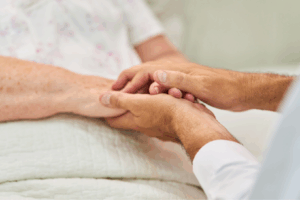For many women, menopause is a well-known milestone—marked by hot flashes, mood swings, and shifts in overall well-being. But emerging research suggests that menopause may also play a significant role in brain health, particularly in relation to Alzheimer’s and dementia. A recent study published in Nature Medicine sheds light on this connection, revealing how hormonal changes in midlife may contribute to cognitive decline later on.
At Institute on Aging (IOA), we recognize the importance of early education on brain health, particularly for women who may be at higher risk for Alzheimer’s. As more people become proactive about their health, understanding the connection between menopause and cognitive function is becoming increasingly important. This research highlights the need for greater awareness and action when it comes to brain health during midlife.
How Menopause Affects Brain Health
Alzheimer’s is often thought of as an aging-related disease, but new findings suggest that the hormonal shifts during menopause may be a key factor in a woman’s long-term brain health. Researchers have found that estrogen, a hormone that naturally declines during menopause, plays a vital role in protecting the brain. As estrogen levels drop, changes in brain metabolism, inflammation, and protein buildup—often seen in Alzheimer’s patients—begin to take place.
The Nature Medicine study emphasizes that menopause is not just a reproductive transition, but a neurological one. Brain fog, memory lapses, and mood changes that some women experience during perimenopause may be early warning signs of deeper cognitive shifts.
While these symptoms don’t necessarily mean Alzheimer’s is imminent, they highlight the importance of paying attention to brain health during this stage of life.
Why Women Are at Higher Risk for Alzheimer’s
Alzheimer’s disproportionately affects women—nearly two-thirds of Americans living with Alzheimer’s are women. While longer life expectancy has often been cited as the reason, new research suggests that hormonal changes during menopause could be a primary contributor. Women’s brains age differently than men’s, and the decline of estrogen may accelerate some of the key markers of neurodegeneration.
Understanding this connection allows women to take proactive steps toward brain health in midlife, rather than waiting until symptoms become severe.
What Women Can Do to Protect Brain Health
While there is no cure for Alzheimer’s, research is beginning to point toward lifestyle changes and medical interventions that may help protect the brain during and after menopause. Here are some key takeaways:
- Monitor Cognitive Changes: If you notice increased forgetfulness, difficulty concentrating, or significant mood changes during menopause, discuss them with a healthcare provider.
- Consider Hormone Therapy (HT): Some studies suggest that estrogen replacement therapy may help protect against cognitive decline if introduced at the right time. However, it’s important to consult with a doctor about the risks and benefits.
- Prioritize a Brain-Healthy Lifestyle: A diet rich in antioxidants, regular physical activity, and quality sleep all support long-term cognitive function.
- Stay Socially and Mentally Engaged: Keeping the brain active through learning, social interaction, and stress management can help build resilience against neurodegenerative diseases.
Changing the Conversation Around Women’s Brain Health
For too long, menopause has been discussed primarily in the context of reproductive health, while its impact on the brain has been overlooked. At IOA, we believe in empowering women with the knowledge to take control of their cognitive health early on. By recognizing the links between menopause and Alzheimer’s, we can shift the conversation from fear to proactive brain care.
Whether you’re experiencing menopause yourself or have a loved one going through this transition, staying informed is key. Alzheimer’s and dementia are complex diseases, but understanding risk factors—like hormonal changes—gives women the power to take preventive action.
Want to learn more about aging and brain health? Sign up for IOA’s newsletter to receive resources, expert insights, and updates on cognitive wellness and dementia care. Because the more we know, the better we can prepare for a future of healthy aging.





